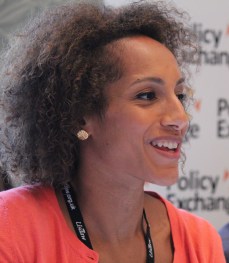Derek Owusu draws on personal experiences to argue that there needs to be more education about the needs of black children when being fostered
I was eight years old when I first realised I was black. Before that, all I saw myself as was a ‘different kind of person’. No colour attached, but of course, visibly different to my peers. I was in foster care for the first eight years of my life–the formative years that, according to the Jesuit maxim, make you the man you will grow into. So by the time I left Suffolk for North London in 1997, damage was already done that would be difficult to correct.
Late discoveries about identity are very common among black children raised in foster care by white families. The fostering families often mean no harm in refusing to see the ethnicity and culture of their fostered children, but by ignoring the obvious, they hurt who they’re supposed to protect. They end up participating in a form of racism that is more pernicious than simply acknowledging someone’s skin colour

When I arrived in London, one of my first experiences was getting a proper haircut. Before this, a haircut was my foster mother snipping at my afro with scissors, trying her best to tame the growth of my tight kinky curls. She wasn’t too fussed about researching how this could be properly done. I knew my hair was quaint, but I didn’t know why. No product had touched my hair before and trying to put a comb through it was simply a waste of energy. Because of the lack of hair care, underneath my afro, my scalp was damaged. My trim was a painful one, and I still remember the disgust on my biological mother’s face as each puff of my hair dropped to the floor sprinkled with dry scalp.
This disgust continued back home, where I was scolded for looking permanently “ashy”, and not knowing how to moisturise myself properly. I would try to rub vaseline all over my face, leaving some parts shiny and others dry, never having done anything like this before and seeing petroleum jelly as a “cream” for all occasions. In hindsight, this is humorous to me, but it was embarrassing for my father, whose embarrassment turned to anger as he punished me for not knowing how to look after myself. Being unable to fully adopt these behaviours and make them my own, I was reminded daily of a lack, a problem with how I presented myself and an ignorance towards cultural norms.
It took some time for my head to heal and for me to learn to take care of my skin; to allow my darkness to develop a healthy glow. Once I left care and entered the house of my black biological parents, I came face to face with a way of living that confirmed and radiated my blackness. It allowed me to look back and realise that love was not the only thing I needed when I was growing up.

It’s common for black foster children to develop serious eczema and other skin conditions because of the neglect; and young black girls having to completely cut off their hair, it being too matted and damaged to do anything with. In Afua’s recently published book “Brit-ish”, she recalls a conversation with Lola, a Black British Nigerian care worker who at age four was put in foster care with a white family, who took good care of her, but were ignorant to the specific needs of black children:
“I think it was apparent that I wasn’t comfortable in my own skin, or with my hair—no one knew how to do my hair. I had really bad eczema because my skin was not being cleaned or creamed properly. I think social services noticed I wasn’t doing well.”
Many foster carers are ignorant about what they’re putting the children through, the psychology they’re creating, thinking that their altruistic intent is enough to overcome all. And often, visiting social workers share the same worldview, one that sees ignoring colour as progressive. Recognising difference, especially when dealing with vulnerable people, is more important than liberal sentiments. The damage to self-esteem that black foster kids often endure because of these seemingly minor details, can find expression in self-hate and a feeling of foreignness around other black people.
Pairing black children with black carers has been cited as a way to overcome these issues within the sector, but after this was briefly introduced in Britain in the 90’s, it left a large number of black kids without homes because of a lack of black carers. It became clearer that the answer was education rather than race-matching.
Anyone who has made the choice to foster should educate themselves on the race and cultural background of the child they’re going to bring into their home. Less obvious are biological differences, with black people being more genetically predisposed to conditions like diabetes, high blood pressure and sickle cell. Mental health issues are also prevalent amongst black children in foster care because they’re so often not sufficiently prepared for the discrimination they’ll likely face as a minority in a country with a history of racism. All of this needs to be considered. Seeing colour in care does not make you racist, carers should understand. It makes you aware and able to cater to needs that may be different to your own.
 If you enjoyed this, and want more like it, then please consider making a donation, it can be anything from £2 and takes no time at all. Or give what you can afford from £2 per month and become an MD member.
If you enjoyed this, and want more like it, then please consider making a donation, it can be anything from £2 and takes no time at all. Or give what you can afford from £2 per month and become an MD member.
 Derek Owusu is a writer, mentor and host on literature podcast, Mostly Lit. He discovered literature at the age of 23 while studying exercise science at university and soon after dedicated his life to reading and writing.
Derek Owusu is a writer, mentor and host on literature podcast, Mostly Lit. He discovered literature at the age of 23 while studying exercise science at university and soon after dedicated his life to reading and writing.
All work published on MD is the intellectual property of its creators, and requires permission to be republished. Contact us if you have any questions.

Reblogged this on | truthaholics and commented:
A poignant indictment of a colour-blind, one-size-fits-all approach to looked after child placements.
LikeLike
Such a thoughtful and necessary article. I can recall a boy with whom I went to school who was adopted by an affluent, white family. Looking back, he was desperate for some knowledge of his bi racial heritage and naturally gravitated to the few other people of colour in our school to attempt to have a connection. In some ways he was lucky he has a modicum of confidence to try and learn more from us but I could see so much (cultural) damage had already been done. I remember feeling a great burden of responsibility to help him understand something of his culture, despite having no idea of where his black heritage was from. To this day, I don’t understand how two well educated parents failed to see the significance of this for him. As a teacher, I increasingly see black children who are within the care system (and even know if a black male colleague who has experienced the care system). It’s just as important for us as educators to be aware and support these children and their foster families. Well done for putting the message out there.
LikeLiked by 1 person
What a great article, I learned so much from reading it, Derek. What a difficult situation that I hope could be helped by ensuring foster parents are aware of, and educated about, the children they foster. I had no idea of the difficulties however I’d hope that any foster parent should be willing to embrace the differences and adapt and change accordingly. Thank you for your insight.
LikeLiked by 1 person